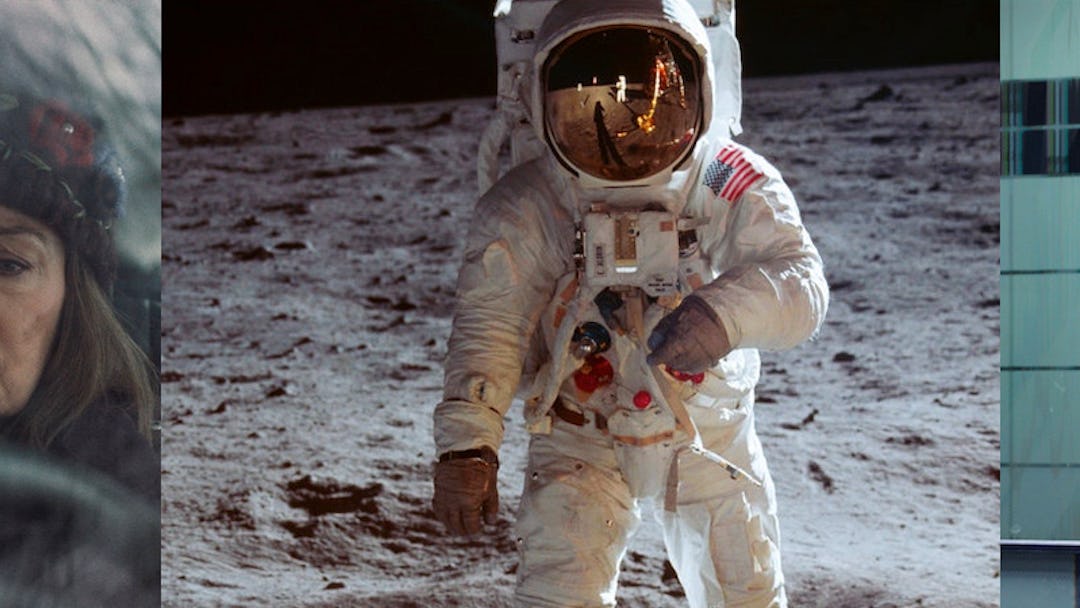Last week was one of the grimmest in memory for new disc and streaming releases, so this week has to be… nope, somehow worse: that movie where Sam Rockwell and Taraji P. Henson solve racism, another Emilio Estevez directorial effort (they just keep letting him try, bless his heart), and another direct-to-video Escape Plan sequel. Woof. Luckily, two of the young year’s best are streaming on Hulu, Netflix has a couple of other recent favorites, and two stone-cold French New Wave bangers are new on Blu, thanks to Kino-Lorber. Let’s take a look:
ON NETFLIX
Spider-Man: Into the Spider-Verse: No one on this earth was less convinced that we needed more damn Spider-Man movies (and this is not an exaggeration; I’ve said as much, in those words), and it took this animated knockout about 10 minutes to turn me around. The easiest explanation is found in the credits; though the directors are Bob Persichetti, Peter Ramsey, and Rodney Rothman, Rothman’s co-writer on the script is Phil Lord of The LEGO Movie and 21 Jump Street — movies borne of bad ideas that knew they were borne of bad ideas, acknowledged that fact, and triumphed anyway. Spider-Verse is of that same ilk, cheerfully aware of the done-to-death nature of the Spidey story, and determined to not only find a new angle, but work on its own terms. Delightful from end to end, particularly as a reminder of the considerable comic gifts of Jake Johnson and John Mulaney.
Night Moves: Co-writer/director Kelly Reichardt (Certain Women, Wendy and Lucy, Meek’s Cutoff) brings her signature no-rush pacing and quietly observational style to this tale of three activists-turned-eco-terrorists (Jesse Eisenberg, Dakota Fanning, and Peter Sarsgaard) planning and executing the bombing of an Oregon dam. Reichart doesn’t push and doesn’t reach for effects; she triangulates the three well-established characters and tells the story with meticulous detail. It’s tense, but not overbearing, and she doesn’t make any judgments about these people — she merely shows us how it happens, and then what happens after. Bracing, powerful, and unpredictable.
ON HULU
Apollo 11: This riveting documentary from director Todd David Miller starts with an essential (and correct) presumption: that the only way to retell one of the most documented events in human history is in the present tense. So Miller dispenses with the standbys – no conventional narration, no contemporary talking heads, and as little background as possible – starting instead on the 1969 launch day and attempting to convey what it must have felt like at that moment– the excitement, the anticipation, the fear. Using an astonishing archive of NASA film and audio recordings, augmented with explainer animations and inventive split-screen work, Apollo 11 makes this oft-told tale new again, and creates (against all odds) some of the most suspenseful scenes in recent cinema.
Diane: Diane is just a nice retired lady in a nice little town upstate who spends her days going around doing her part: trading casseroles (and borrowed dishes), visiting sick relatives, scooping out mac and cheese during dinnertime at the shelter. But there’s darkness in her day-to-day; whenever anyone asks how her twentysomething son is doing, there’s a hesitancy in their voice, and everyone knows why. Writer/director Kent Jones tells her story in short, simple scenes, snapshots of this seemingly ordinary life — and then he digs deeper, with a reminder that even someone like Diane had younger, wilder days, and maybe she’s not some folksy saint after all. Mary Kay Place is marvelous in the leading role, and her screen presence is so warm and comforting, we think we know her. Jones uses that familiarity, brilliantly.
ON BLU-RAY
Bob Le Flambeur: Jean-Pierre Melville’s crackerjack 1956 thriller, along with Jules Dassin’s Rififi the year before, set a template for the heist movie that we still adhere to: the perfect plan, the assembling of the team, the prep, the complications, the job, the payoff. But Bob is much more than mere mechanics: like the best films of the French New Wave (which it also helped kick-start), the tropes of American crime pictures aren’t the focus, but merely serve the needs of the character drama Melville is more interested in making. And he does so in high style, with considerable help from a cool-as-a-cucumber Roger Duchesne in the leading role, the friendly gambler at the caper’s center. (Includes audio commentary, featurette, and trailer.)
Le Doulos: Six years later, with the French New Wave off and running, Melville crafted this sharp-edged story of crime, brutality, and betrayal, featuring Breathless star Jean-Paul Belmondo at his most charismatic. The story is compelling, but this is the film where you really see the Melville style flowering: rough violence, offhand sexuality, and tough, hard cases in great hats and coats, growling at each other in run-down apartments. When they talk about the New Wave, this is what they’re talking about. (Includes audio commentary, featurette, interview, Melville short film, and trailer.)
